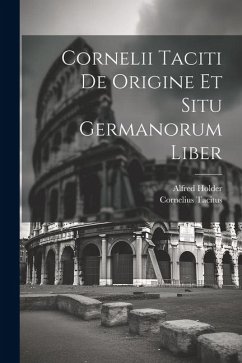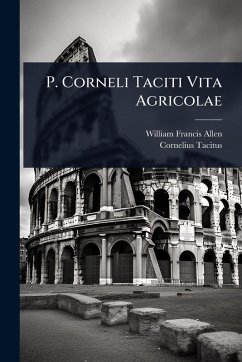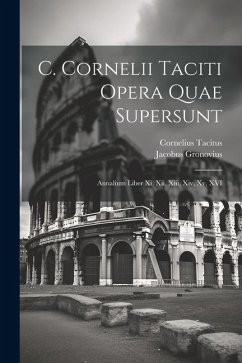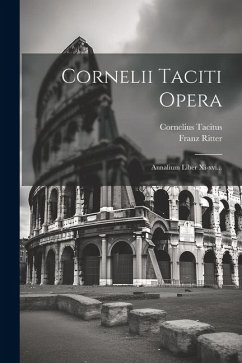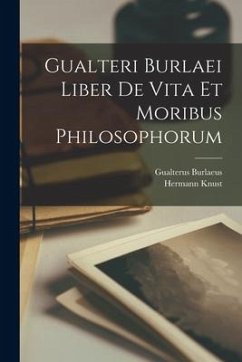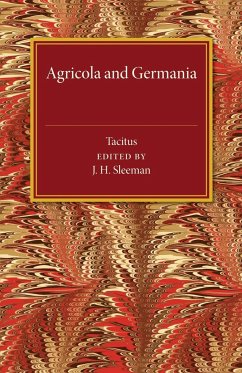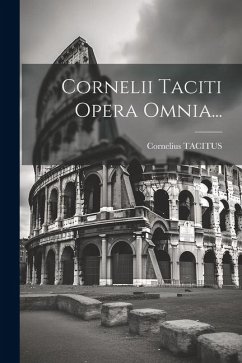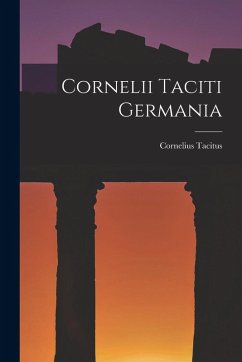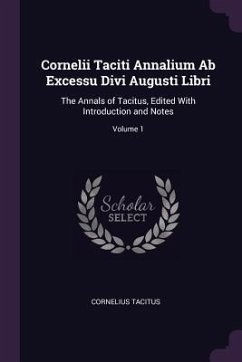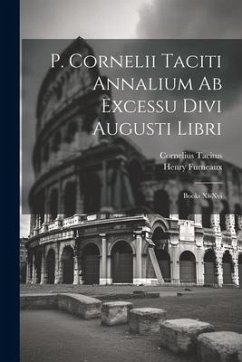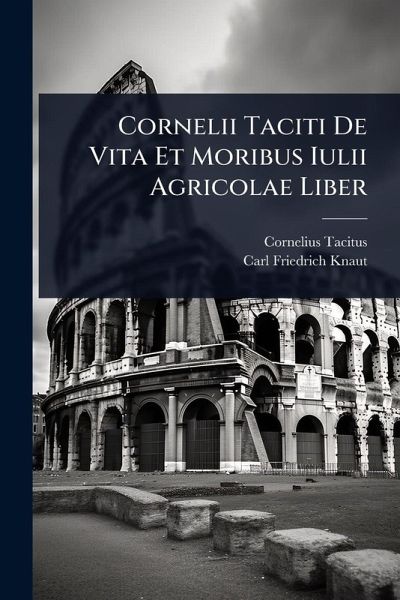
Cornelii Taciti De Vita Et Moribus Iulii Agricolae Liber

PAYBACK Punkte
8 °P sammeln!
De Vita et Moribus Iulii Agricolae, often referred to simply as "Agricola," is a biography written by the Roman historian Tacitus. It details the life of his father-in-law, Gnaeus Julius Agricola, a distinguished Roman general and governor of Britain. Tacitus uses the biography not only to honor Agricola but also to offer insights into Roman imperial administration, the challenges of military leadership, and the complexities of Roman-British relations. This edition, prepared by Carl Friedrich Knaut, provides valuable context for understanding Tacitus's work and its historical significance. "Ag...
De Vita et Moribus Iulii Agricolae, often referred to simply as "Agricola," is a biography written by the Roman historian Tacitus. It details the life of his father-in-law, Gnaeus Julius Agricola, a distinguished Roman general and governor of Britain. Tacitus uses the biography not only to honor Agricola but also to offer insights into Roman imperial administration, the challenges of military leadership, and the complexities of Roman-British relations. This edition, prepared by Carl Friedrich Knaut, provides valuable context for understanding Tacitus's work and its historical significance. "Agricola" remains a vital source for understanding Roman history and a compelling example of classical biography, offering timeless reflections on virtue, ambition, and the nature of power. This work has been selected by scholars as being culturally important, and is part of the knowledge base of civilization as we know it. This work was reproduced from the original artifact, and remains as true to the original work as possible. Therefore, you will see the original copyright references, library stamps (as most of these works have been housed in our most important libraries around the world), and other notations in the work. This work is in the public domain in the United States of America, and possibly other nations. Within the United States, you may freely copy and distribute this work, as no entity (individual or corporate) has a copyright on the body of the work. As a reproduction of a historical artifact, this work may contain missing or blurred pages, poor pictures, errant marks, etc. Scholars believe, and we concur, that this work is important enough to be preserved, reproduced, and made generally available to the public. We appreciate your support of the preservation process, and thank you for being an important part of keeping this knowledge alive and relevant.



